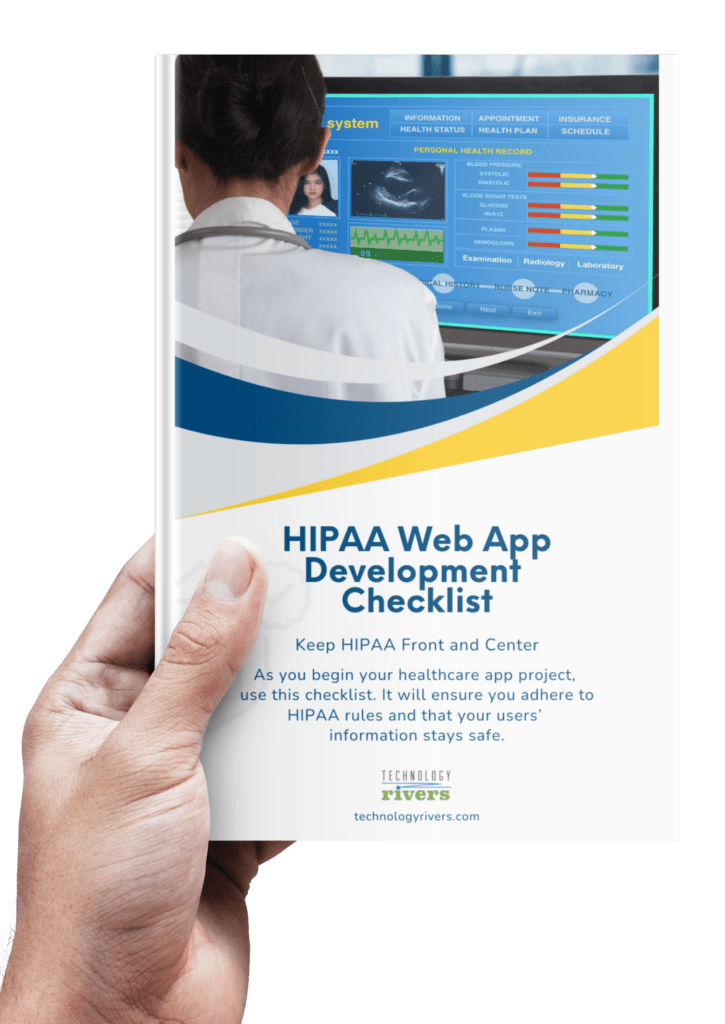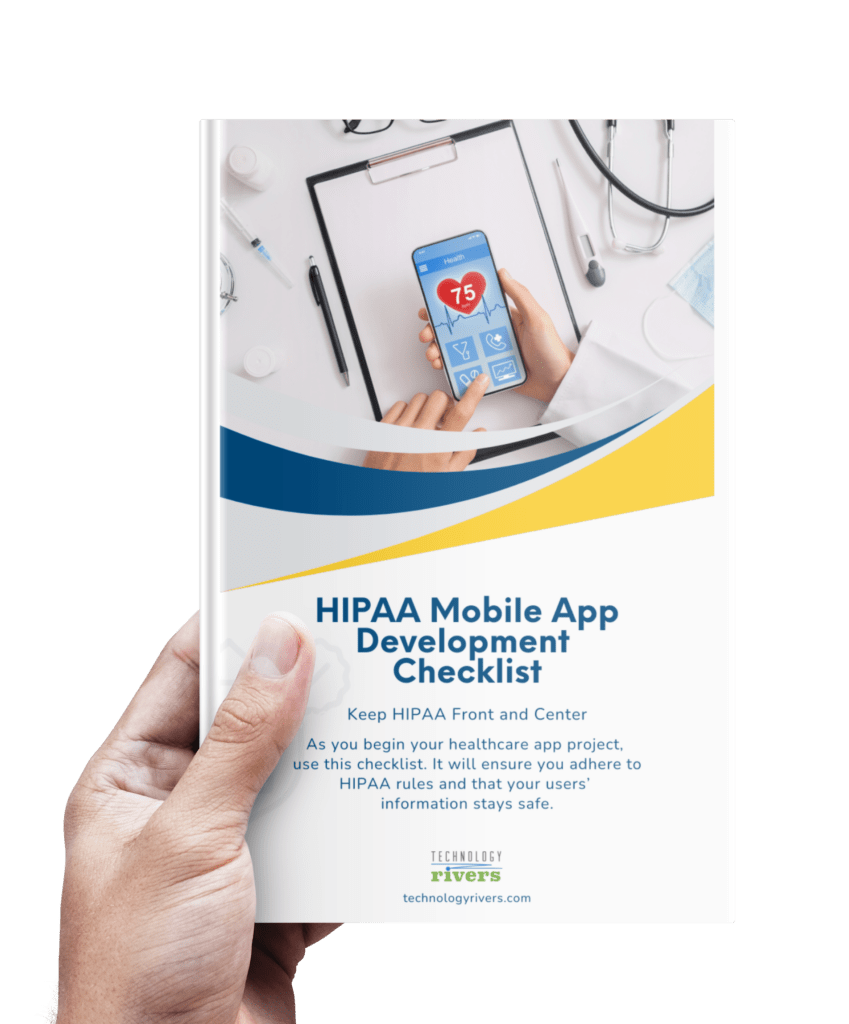Imagine this: You’re a business owner looking to expand and reach your customers on the go. You know that having an online presence can greatly enhance your business’s visibility and functionality, but don’t know what type of applications to build or where to start.
Let’s face it – we now live in a world that’s moving faster than ever before, and if your business isn’t keeping up with the times, you’re bound to fall behind.
Welcome to the digital battleground where having an unbeatable online presence is the key to staying ahead of the game!
Having a killer online presence is non-negotiable, and having an application can be the game-changer that propels your business forward. A well-designed application can take your customer experience to the next level, build brand loyalty, and drive up revenue.
But with a plethora of application options out there, how do you navigate the maze and choose the perfect fit for your business? Chances are, you’re facing the age-old dilemma of choosing between a versatile web application or a responsive mobile application for your business, or maybe both!
In this blog post, we’re going to break down the pros and cons of both options, so you can make an informed decision that aligns with your business needs.
What Is a Web App?
A web application, in simple terms, is like a website that acts like an app. They don’t require any downloads or installations, making them accessible to anyone with an internet connection.
A sample of web apps like Google Docs, Trello, and Dropbox are typically built using web technologies like HTML, CSS, and JavaScript and is accessible through a web browser such as Google Chrome, Safari, or Mozilla Firefox from any device.
There are also various frameworks that are used to build web apps more efficiently.
Responsive web apps and progressive web apps (PWAs) are both web applications that are designed to provide a good user experience on any device. However, there are some key differences between the two.
The best type of web app for you will depend on your specific needs and requirements. If you need an app that can be used on a variety of devices and that is easy to develop, then a responsive web app is a good option. If you need an app that can provide a native-like experience, such as offline access and push notifications, then a PWA is a better choice.

Advantages of Web Apps for Businesses
Platform Independence
One of the biggest advantages of web applications is that they are platform-independent, which makes web applications versatile and highly accessible to a wide range of users. They can be accessed from any device with a web browser, regardless of the operating system that the user is using.
Easy Maintenance and Updates
Since web applications are hosted on a web server, updates, and maintenance can be done centrally. Meaning, you can make updates in real time without requiring your users to download any updates or install new versions of the application on their devices. This makes it easier for businesses to maintain and update their apps without disrupting the user experience.
Cost-Effective
Developing web applications can be relatively easier and cheaper to develop compared to mobile apps. Web applications do not require separate development for different operating systems, and they can be built using common web technologies, which can result in cost savings for businesses, especially for startups and small businesses with limited budgets.
Wider Reach
Web apps have a wider reach as they can be accessed from any device with a web browser. This can be beneficial for businesses that want to target a broader audience and reach users on different platforms and devices.
Disadvantages of Web Apps
Limited Functionality
Despite the advantages of web apps, as with everything in life, there are also some downsides to consider. Web applications may have limitations in terms of functionality and level of performance compared to mobile apps.
Web apps may not perform as smoothly as mobile apps, especially for complex or resource-intensive tasks. They may also be less interactive and engaging compared to mobile apps and may have slower load times, depending on the internet connection.
Limited Access to Device Features
Web applications may also not have the same level of performance and may not be able to access all the features of a user’s device, such as the camera, GPS, or contacts, due to security and privacy reasons.
Offline Access
Web apps require an internet connection to function. So they may not work offline or have limited offline capabilities, which can be a disadvantage in certain scenarios where internet connectivity is limited or unavailable.
What Is a Mobile App?
A mobile app, as the name suggests, is a software application that is downloaded or installed from an app store or marketplace, such as the Apple App Store or Google Play Store. They are designed specifically to run on mobile devices such as smartphones and tablets and are built specifically for the platform they are intended to run on, whether it be iOS or Android, or both.

Advantages of Mobile Apps for Businesses
There are several advantages to building mobile apps, but here are a few listed below:
Enhanced User Experience
Mobile apps are designed specifically for mobile devices, which allows for a more optimized and immersive user experience. Mobile applications can leverage the unique features of mobile devices, such as the camera, GPS, sensors, and push notifications to offer personalized and engaging experiences to your users.
Offline Access
Mobile applications, unlike web applications, can work offline or have limited offline capabilities. They can be used offline, but typically require an internet connection to download data or content.
App Store Visibility
Mobile applications are typically downloaded and installed from app stores, which can provide businesses a chance for their apps to be discovered by users. You just have to make sure that you are optimizing your app for the marketplace beforehand so that it becomes a powerful user acquisition tool.
Disadvantages of Mobile Apps
Development Cost
Mobile apps need to be developed separately for each platform (iOS and Android), which can increase development time and cost.
App Store Approval
Mobile apps need to be approved by app stores before they can be published, which can lead to delays and rejections.
Maintenance and Updates
Mobile apps require regular maintenance and updates to ensure compatibility with new devices and operating systems.
Who Wins?
Now that we understand the differences between web applications and mobile applications, let’s explore which one is best for your business.
So, what’s your verdict? Are you a team web applications or a team mobile applications?
Well, it all depends on your business goals, target audience, and budget.
If you want a cost-effective solution with a wide reach, a web applications might be the way to go. But if you’re looking for a superior user experience with advanced features like GPS, push notifications, and in-app purchases, a mobile applications might be the right fit.
The key is to carefully evaluate your business needs and make a decision that aligns with your goals.
The Bottom Line
There’s no one-size-fits-all answer to the web applications vs. mobile applications debate. It all comes down to what you want to achieve with your application and what resources you’re willing to invest.
Remember, no matter which option you choose, the most important thing is to collaborate with an experienced development team who can work towards your goals and create an application that adds value to your customers and helps your business thrive in the digital world.
Creating an online presence that aligns with your vision – regardless of whether it’s a web applications or mobile applications – is an ongoing process that requires regular adjustments and updates to adapt to the changing goals and requirements of your customers.
Our experienced team at Technology Rivers, are committed to providing you with expert guidance as you enter into the digital world. Feel free to meet with us and schedule a free consultation, or reach out to me directly on LinkedIn and let’s brainstorm together.













